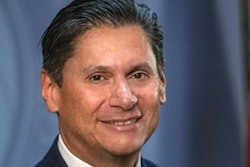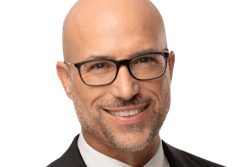Deferred Action for Childhood Arrival (DACA) and undocumented graduates continue to take on leading positions at some of America’s largest economic engines like Google and Microsoft, investing in their own families and communities, despite experiencing increasingly high levels of stress regarding their immigration. But with DACA applications closed, more undocumented students are struggling to obtain workforce authorization and careers.
Those are the findings from a new report and survey conducted by TheDream.US and Golden Door Scholars, two scholarship organizations helping undocumented students access, persist, and succeed in postsecondary education.
The survey connected with over 2,000 of the programs’ alumni to assess their post-graduation trajectories and found that, despite the majority earning more after graduation than their parents combined, 96% said they felt a level of anxiety regarding their immigration status. Of graduates with work authorization, 93% are working. Of those without work authorization, only 69% are working.
 Dr. Hyein Lee, chief operating officer at TheDream.US.
Dr. Hyein Lee, chief operating officer at TheDream.US.
“The data speak to how economic integration is relatively smooth for those able to take advantage of DACA,” said Dr. Hyein Lee, chief operating officer at TheDream.US. “Those who only have individual tax payer ID numbers have to be freelancers or contract workers.”
Lee said that postsecondary institutions have an important role to play in sharing the success stories of their undocumented students and alumni. The majority of the 100,000 undocumented high school graduates each year do not have DACA or Temporary Protected Status (TPS), and many are questioning why they should go to college.
“Right now, the narrative of dreamers has become muddled with what’s going on at the border, and it’s really important to keep talking about a population that’s grown up and spent their entire lives in this country,” said Lee. “They’re not looking for handouts, they’re looking for opportunity to give back and contribute.”
Since DACA was first enacted in 2012, more than 825,000 recipients experienced a greater life stability thanks to work authorization. The Center for American Progress found that DACA households pay $6.2 billion in federal taxes and $3.3 billion in state and local taxes yearly. After taxes, DACA families have over $25 billion in spending power. Losing DACA employees could cost businesses up to $8 billion in training and recruitment costs, according to the report.
Lee said she does not believe the American public in general understands just “how deeply embedded DACA recipients and Temporary Protected Status (TPS) holders are in the American labor force.”
Many undocumented graduates work as nurses and teachers, motivated by the inequity they experienced growing up.
“Our alumni have grown up with personal experiences of watching their parents, who may have an injury, be denied healthcare [because of immigration status],” said Lee. “They themselves have gone through K-12 with such high expectations from parents and themselves only to be told they have no option for college. They are then so committed to careers that change this outcome for future generations.”
 Gisselle Molinary Rivera, senior program manager at Golden Door Scholars.
Gisselle Molinary Rivera, senior program manager at Golden Door Scholars.
“The number of minds that work at great companies, the salaries they’re getting, they are impacting our community and doing great work. We would love more alumni to do the same thing, but they can’t without work authorization,” said Molinary Rivera. “There are people who are stuck in their careers, who cannot get promoted because of their status. All people want to have a career, but they hit a wall.”
This is why Golden Door offers courses in freelancing, contracting, and entrepreneurship, increasing undocumented graduates’ chances of earning more money with their degrees, as they wait for the courts and legislators to decide their futures.
Liann Herder can be reached at lherder@diverseeducation.com.
















